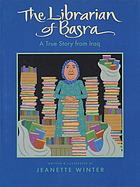Perhaps you would like to write a non-fiction book? You are in plentiful company. Each year nearly 300,000 books are published
in the US. About four out of five are
non-fiction!
 While there are lots of non-fiction books out there to
keep yours company, there are some potential pitfalls associated with the
genre. Let’s discuss that.
While there are lots of non-fiction books out there to
keep yours company, there are some potential pitfalls associated with the
genre. Let’s discuss that.
We all know non-fiction is just that—something that
must be truthful, not concocted from our imaginations as with fiction. Not only, however, does it have to be the
truth, we as authors have to do due diligence to make it that way. Simply put,
we must hold ourselves to the highest standard
to ensure the content of our work is true and accurate to the best of our
ability. Yes, it’s exactly what lawyers
are expected to do, and is, in fact, a legal term.
 So how do we achieve this high-minded
standard and not get sued for all our efforts, which is the end game of this
post. Here are a few guideposts:
So how do we achieve this high-minded
standard and not get sued for all our efforts, which is the end game of this
post. Here are a few guideposts:
1. If you’re not sure of your source/s be sure to
investigate their credentials, making certain they are qualified and are who they say they are.
2. Obtain
confirmation from unrelated sources to support what your primary sources
provided. (More research on your part
but necessary and well worth the effort.)
3. Whenever
possible, try to get confirmation from secondary sources what you learned from
your primary sources.
4. When
depending on your memory or personal experiences, secure independent
corroboration. *Crucial in narrative
non-fiction.
 5. If
something does not seem correct, even though the source is trustworthy, satisfy
whatever doubts you have about the veracity of the material. Trust your
instincts.
5. If
something does not seem correct, even though the source is trustworthy, satisfy
whatever doubts you have about the veracity of the material. Trust your
instincts.
6. Try
to avoid relying upon only one eyewitness account or what only one person
remembers. Two or more can make all the
difference!
Let me end by saying I usually don’t give lists of how
to do things. These six tips, though,
can save a non-fiction writer many headaches with a lawsuit on the side! Again, I cannot stress enough the due
diligence factor in tackling non-fiction, particularly with topics as medicine,
history or biography. Due diligence is
first among equals for a strong, successful and well-executed work of
non-fiction!

